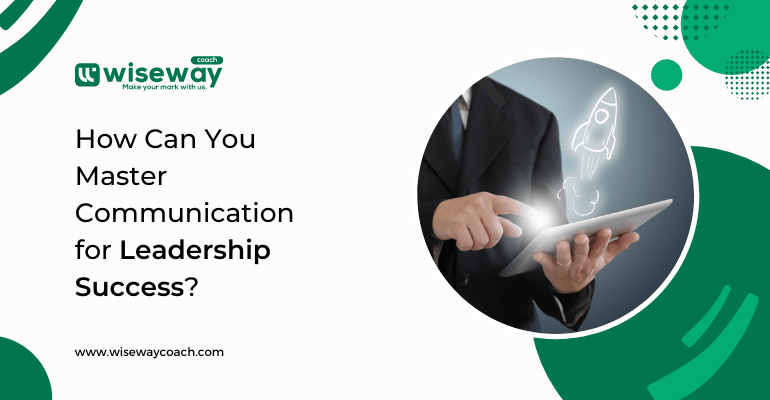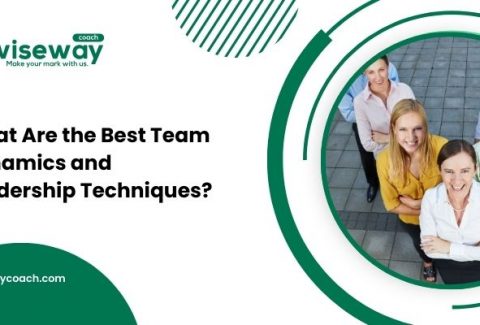How Can You Master Communication for Leadership Success?
August 21, 2024 2024-08-21 18:01How Can You Master Communication for Leadership Success?
Effective communication is one of the most vital skills for leadership success. Leaders who master communication can inspire their teams, build trust, navigate challenges, and drive organizational success. However, mastering communication is more than just conveying information; it’s about engaging, listening, and connecting with people on a deeper level. Here’s how you can master communication for leadership success.
1. Develop Active Listening Skills
Active listening is the cornerstone of effective communication. It involves fully concentrating, understanding, responding, and remembering what is being said. As a leader, practicing active listening means giving your full attention to the speaker, avoiding interruptions, and showing empathy. This not only helps in understanding the issues and concerns of your team but also makes them feel valued and respected.
2. Be Clear and Concise
Clarity and conciseness are essential for effective communication. Leaders must convey their messages in a clear and straightforward manner, avoiding jargon and unnecessary complexity. This ensures that everyone understands the information, reducing the risk of misunderstandings and mistakes. When communicating, focus on the key points and be as specific as possible.
3. Use Positive and Constructive Feedback
Providing feedback is a crucial aspect of leadership communication. Effective leaders use positive and constructive feedback to guide and motivate their teams. Positive feedback recognizes and reinforces good performance, while constructive feedback helps employees understand areas for improvement without demoralizing them. Deliver feedback promptly, be specific, and ensure it is balanced with recognition of achievements.
4. Master Nonverbal Communication
Nonverbal communication, including body language, facial expressions, and tone of voice, plays a significant role in how your message is perceived. Leaders must be aware of their nonverbal cues and ensure they align with their verbal messages. For instance, maintaining eye contact shows confidence and sincerity, while an open posture can make you appear more approachable and receptive.
5. Adapt Your Communication Style
Effective leaders understand that different situations and individuals require different communication styles. Adaptability involves tailoring your approach to suit the needs and preferences of your audience. For example, some team members may prefer detailed information, while others might appreciate a high-level overview. Being flexible and considerate of these differences enhances your ability to connect with and influence your team.
6. Foster an Open Communication Environment
Creating an environment where open communication is encouraged can significantly enhance leadership effectiveness. Leaders should promote a culture of openness where team members feel comfortable sharing their ideas, concerns, and feedback. This can be achieved by being approachable, actively seeking input, and valuing diverse perspectives. An open communication environment fosters collaboration, innovation, and trust within the team.
7. Utilize Technology Effectively
In today’s digital age, leaders must be adept at using various communication technologies. Whether it’s email, video conferencing, or collaboration tools, understanding how to effectively use these platforms is essential for maintaining clear and consistent communication. Additionally, being mindful of the appropriate medium for different messages can enhance communication efficiency and effectiveness.
8. Practice Empathy
Empathy is the ability to understand and share the feelings of others. Leaders who practice empathy can connect with their team on an emotional level, build stronger relationships, and create a supportive work environment. This involves being attentive to the emotional cues of others, showing genuine concern for their well-being, and being willing to support them through challenges.
9. Encourage Two-Way Communication
Effective communication is a two-way street. Leaders should encourage dialogue rather than monologue. This means inviting questions, encouraging discussion, and being open to feedback. Two-way communication ensures that team members are not only receiving information but also feel heard and involved in the decision-making process.
10. Continuously Improve Your Communication Skills
Mastering communication is an ongoing process. Leaders should continuously seek opportunities to improve their communication skills through training, feedback, and practice. This might include public speaking courses, workshops on active listening, or simply being mindful of your communication habits and seeking feedback from your team. Continuous improvement helps leaders stay effective and adapt to the evolving communication needs of their organization.
Conclusion
Mastering communication is essential for leadership success. By developing active listening skills, being clear and concise, using positive and constructive feedback, mastering nonverbal communication, adapting your communication style, fostering an open communication environment, utilizing technology effectively, practicing empathy, encouraging two-way communication, and continuously improving your skills, you can enhance your leadership effectiveness and drive your organization towards success. Communication is not just about speaking; it’s about connecting, understanding, and leading with confidence and clarity.


